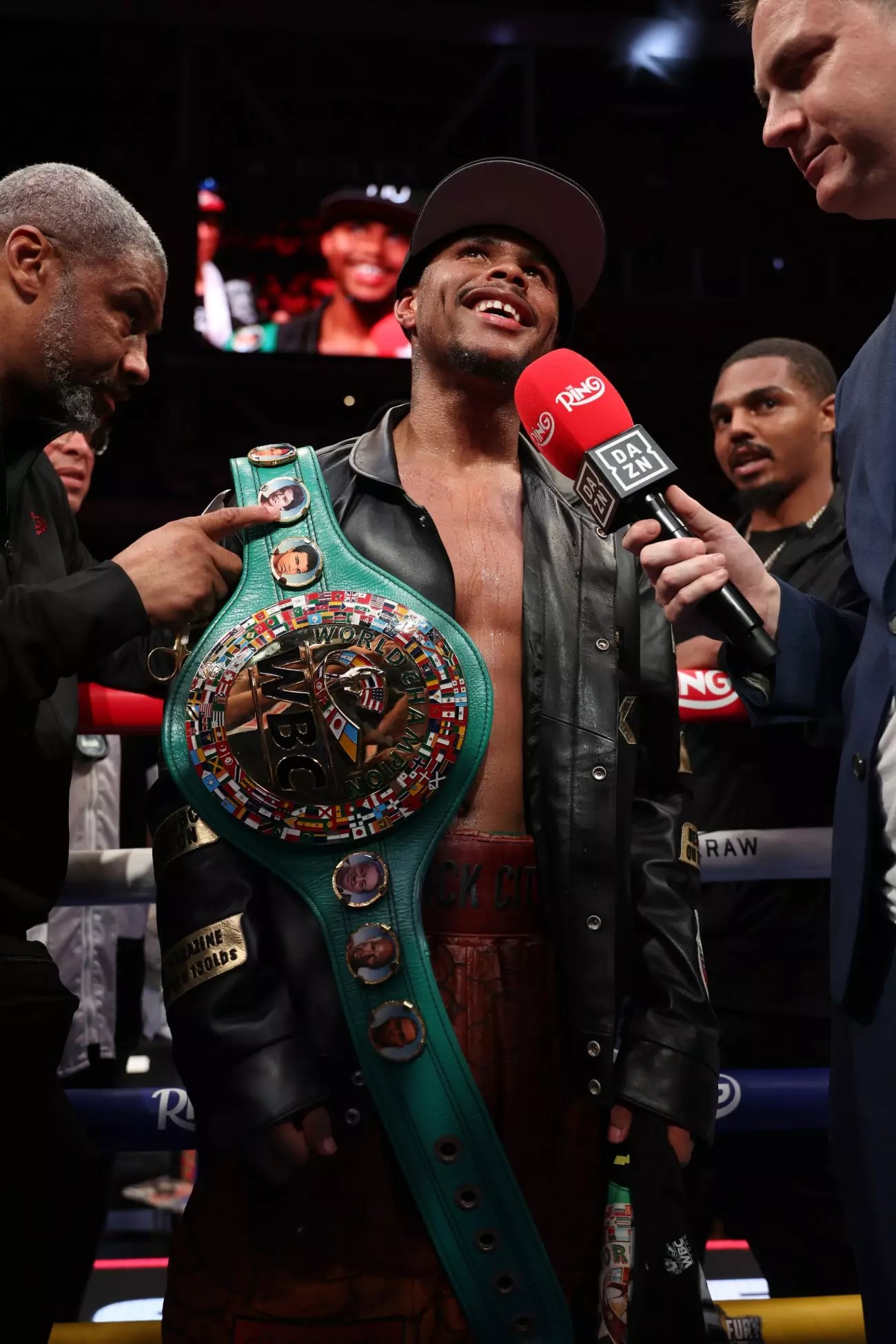Shakur Stevenson’s declaration of intent to dominate the boxing universe by claiming he is the “best fighter on the planet” is more than mere bravado; it’s a calculated move rooted in strategic career planning. By targeting Teofimo Lopez, Stevenson isn’t just chasing a high-profile fight; he’s positioning himself at the center of a narrative that centers around legacy, reputation, and undeniable skill. His relentless pursuit of Lopez suggests a fighter eager to cement his name among the elite—willing to sit patiently for months to secure a mega-fight that can elevate his standing. Yet, this patience raises questions about confidence. Is Stevenson truly ready to face the best, or is his bravado masking insecurities about his ability to defeat fighters of Lopez’s caliber?
This pursuit underscores a common but dangerous mentality in boxing: fighters often overestimate their capabilities based on their record rather than their real opposition. Stevenson’s undefeated record and amateur prowess clearly point to talent, but a closer look at his competition at 135 pounds reveals gaps. His opponents often lack the big punch or elite experience needed to test his resilience. This leads to skepticism about whether Stevenson genuinely believes he’s the best or if he’s merely caught in the illusion of self-belief fueled by wins over less threatening foes.
The Reality Behind the Record: Limited Competition and Self-Perception
Despite his undefeated streak, Stevenson’s career trajectory raises critical questions about his self-assessment. His opponents—William Zepeda, Josh Padley, Artem Harutyunyan, Edwin De Los Santos, and Shuichiro Yoshino—are credible but don’t represent the absolute top tier of lightweight fighters. His performances against punchers like De Los Santos seemed more about survival than dominance; he was on the defensive, absorbing significant punishment and abandoning offensive initiative. This pattern suggests a fighter who is skilled, but perhaps not possessing the destructive power or mental toughness required to enthrall fans consistently.
Critics argue that Stevenson’s style, which is rooted in boxing finesse and movement, may not be built to withstand the assault of elite punchers. His reluctance to stand and trade with powerful opponents hints at a cautious approach that could undermine claims of being the “best” when tested against fighters who can crack. Does strategy and caution imply self-doubt, or is it a necessary evolution? From a critical perspective, Stevenson’s record offers limited evidence of his ability to truly dominate the sport’s toughest challenges. His bravado, while admirable, risks sounding hollow absent a victory over a universally recognized star.
The Long Wait and Its Implications
Teofimo Lopez’s frustration at the prolonged wait for the bout reflects a broader issue within boxing: the strategic delays that often benefit the fighters with more time to heal, develop, or prepare. Stevenson’s recent physical issues, including hand surgeries and injuries sustained from punishing fights, could potentially give him an advantage by stretching the timeline. However, this strategy is a double-edged sword. While delaying may allow Stevenson to recover fully and strategize, it also risks diminishing the fight’s momentum and relevance.
The anticipation surrounding this bout, set for early 2026, leaves fans and critics alike questioning whether the delay serves Stevenson’s interests. Does it merely prolong his quest for validation, or does it offer him a chance to improve and avoid previous pitfalls? His claim of wanting the fight in early 2024 exemplifies impatience, but internal struggles—physical and mental—may necessitate patience. Regardless, the waiting period emphasizes Stevenson’s vulnerability; his recent performances do not yet justify the hype of being the top fighter in the world without a notable win against a true star like Lopez.
The Real Power Play: Confidence Versus Reality
Stevenson’s unwavering assertion of being the best can be viewed through two lenses: either as genuine self-confidence or as a tactical bluff. While fostering belief in oneself is essential in such a highly competitive sport, overestimating one’s capabilities without tangible proof is perilous. If Stevenson truly believes his prowess surpasses all others, then his upcoming fight against Lopez becomes a litmus test—an opportunity to transform rhetoric into reality. However, if his self-assessment is inflated, the risk is stepping into the ring unprepared and facing a stark awakening.
Lopez’s own words reveal impatience and a sense of inevitability about the bout, hinting at mutual recognition of its significance. The strategic timing, with Lopez pushing for an earlier fight, signals that both fighters are aware of the moment’s importance—a battle not just of fists but of mental fortitude, legacy, and perception. Stevenson’s bravado, though inspiring, must be substantiated by victory. Otherwise, it risks becoming a hollow claim that echoes but lacks conviction when tested amid the unforgiving reality of the boxing ring.
The Ultimate Test of Will and Skill
At the crossroads of self-belief and objective reality, Shakur Stevenson faces not just Lopez but his own perception. The pathway to asserting himself as the best means navigating the complicated terrain of physical readiness, mental toughness, and strategic patience. Boxing is famously unforgiving for those who overestimate themselves or underestimate their opponents. Stevenson’s career so far suggests a talented fighter with tremendous potential, but it also hints at an underlying need to prove he can conquer the true giants of the sport.
In the end, the fight with Lopez could serve as more than a contest of fists; it can be a defining moment that confirms or refutes Stevenson’s claims. Will he step up and accept the challenge with the humility and resolve it demands? Or will his overconfidence be his undoing? The boxing world waits eagerly, knowing that only through this watershed moment can Stevenson’s true place among the greats be determined. Until then, his self-assurance remains a compelling but unproven spectacle—a fighter eager to claim his destiny while still searching for undeniable proof.

